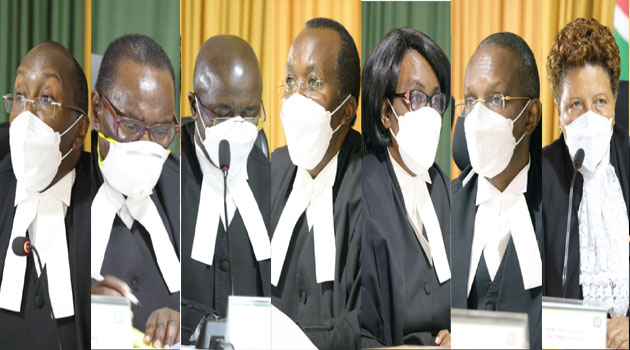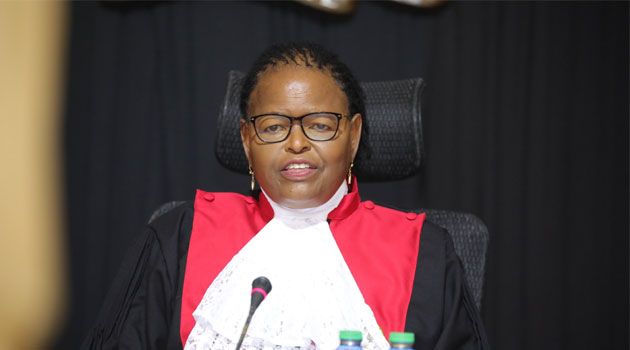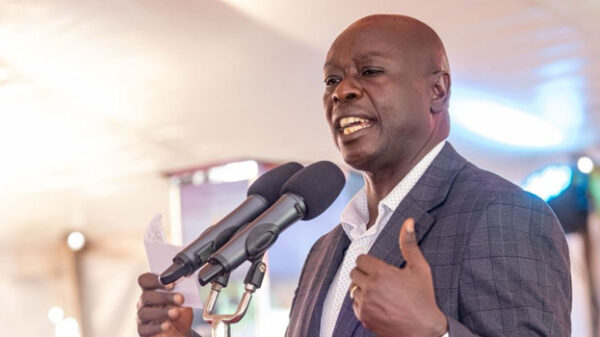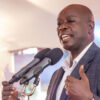NAIROBI, Kenya, Mar 31 — Supreme Court justices on Thursday set out to outline their respective opinions on the petition challenging the BBI constitutional review process invalidated twice by two superior courts, seventy days after the court concluded hearing an appeal.
Chief Justice Martha Koome, the President of the Court, said each of the seven judges sitting on the bench would outline their respective opinions in line with the tradition of court panels before the court gives a consolidated judgement.
She further said the apex court had distilled the petition into seven issues that the justices will pronounce themselves on.
The bench comprises of CJ Koome, Deputy Chief Justice Philomena Mwilu, Mohamed Ibrahim, Smokin Wanjala, Njoki Ndung’u, Isaac Lenaola and William Ouko.
The BBI case emanates from a suit filed by four activists in September 2020 who sought the court’s interpretation on the applicability of the basic structure doctrine, a common law judicial principle safeguarding certain clauses of the Constitution from amendment, in Kenya.
Economist David Ndiii as well as activists Jerotich Seii, James Ngondi, Wanjiku Gikonyo and Ikal Angelei argued that the basic structure doctrine limits the amendment power in the constitution both under Articles 256 and 257.
The matter was later referred to the Chief Justice who constituted a five-judge bench of the High Court sitting as a Constitutional Court.
In a verdict issued in May 2021, the five-judge bench comprising of of Justices Prof Joel Ngugi (President), George Odunga, Jairus Ngaah, Chacha Mwita and Matheka Mumbua, the Constitutional Court declared the BBI process initiated jointly by President Uhuru Kenyatta and ODM leader Raila Odinga, with fierce opposition from Deputy President William Ruto, as null and void.
The Prof Ngugi-led bench made multiple decrees, key among them a finding upholding the basic structure doctrine under which certain clauses of the Constitution are deemed unamendable and that the electoral commission lacked the statutory quorum to verify signatures submitted by BBI promoters in favour of the amendment process.
The court declared the basic structure of the constitution could only be amended by invoking a four-phased process entailing, “civic education; public participation and collation of views; Constituent Assembly debate; and ultimately, a referendum.”
The BBI constitutional review process was found to have fallen short of the Primary Constituent Power, the court holding that the President overreached his mandate in promoting constitutional changes under a popular initiative.
“A constitutional amendment can only be initiated by Parliament through a Parliamentary initiative under article 256 or through a Popular Initiative under Article 257 of the Constitution,” the bench ruled.
The Constitutional Court’s decision was upheld by the Court of Appeal on August 20, 2021 with six of the seven judges who composed the appellate bench upholding the Constitutional Court finding on the application of the basic structure doctrine.

Justices Daniel Musinga (President), Patrick Kiage, Francis Tuiyott, Gatembu Kairu, Hannah Okwengu and Roselyn Nambuye supported the basic structure doctrine while Fatuma Sichale dissented.
“The making and unmaking of the constitution is a preserve of people exercising their constituent power. By falling short on making provisions and procedure, textual reading of Article 255(1) matches or is in accord with contextual interpretation of the clause that power to change constitution rests elsewhere and need not be codified,” Justice Tuiyott observed.
The court also held the basic structure doctrine limits amendment power in Articles 255, 256 and 257 with two judges – Sichale and Okwengu – dissenting.
“The amendments proposed by the BBI initiative were so far reaching in character, scope and content as to shake the foundation and alter the identity and character of the Constitution,” Justice Kiage stated.
Justices Musinga, Kiage, Tuiyott and Nambuye rendered a majority verdict upholding the Constitutional Court judgement that stated primary constituent power with regard to eternity clauses could only be invoked through a four-phased process entailing civic education; public participation and collation of views; Constituent Assembly debate; and ultimately, a referendum. Okwengu, Sichale and Kairu dissented.
“Being living document must change as the society changes, that a living constitution must be flexible to allow for a country’s growth and the review of a Constitution is essential so as to cater for new and unforeseen problems and hence it is inadvisable to have a constitution that is cast in stone,” Lady Justice Sichale stated in her dissenting opinion.
All the judges except Tuiyott also held the position that civil proceedings could be instituted against the President for his actions or inaction in the conduct of official duties.
On whether the President has authority to initiate constitutional amendments, the court was unanimous that the Head of State could not do so affirming the May 14 decision by Justices Prof Joel Ngugi, George Odunga, Jairus Ngaah, Chacha Mwita and Matheka Mumbua.
“His Excellency the President cannot be a wanjiku (ordinary citizen). I agree with the High Court that the President cannot initiate changes through popular Initiative,” Lady Justice Sichale stated.
“The president’s involvement in the BBI was not in his private capacity. It was also necessary for the public to be supplied with adequate copies of the Bill for their consumption before collection of their signatures,” Justice Kairu added.
About The Author

























































